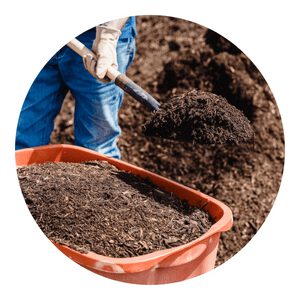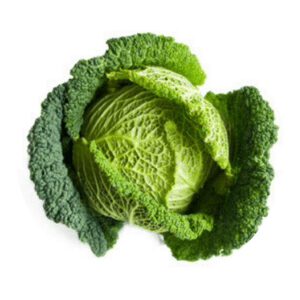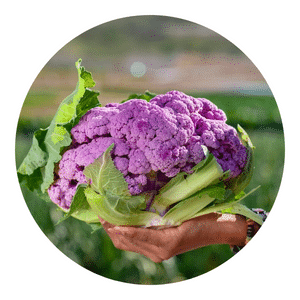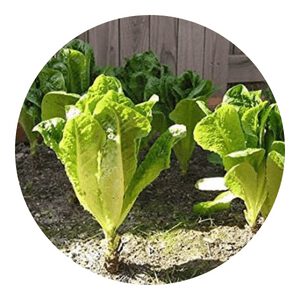What Vegetable Grow Well In Winter
In winter, many gardens lie dormant, but that doesn’t mean you can’t enjoy fresh, homegrown vegetables.
With a little planning, you can have a winter garden that provides you with plenty of produce to enjoy throughout the colder months.
Here are some of the best vegetables to grow in winter:
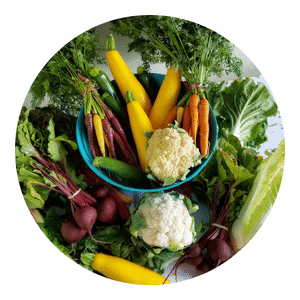
Winter Vegetables
Kale
Kale is a winter vegetable that thrives in cold weather. It is a hardy plant that can withstand frost and snow.
Kale is a nutrient-rich vegetable that is high in vitamins A, C, and K. It also contains calcium, iron, and magnesium.
Kale is easy to grow and does not require much maintenance. It is an ideal winter crop for the home gardener.
Carrots
Carrots are a winter vegetable that does well in cold weather.
They are a hardy root vegetable that can be planted in the fall and will overwinter in the ground, producing a crop the following spring.
Carrots are typically harvested in late spring or early summer, but can be left in the ground until needed.
Carrots need full sun and well-drained soil to grow properly. They should be fertilized before planting and again when they begin to flower.
Carrots can be grown from seed or transplants. If you are growing carrots from seed, sow them directly in the garden as they do not transplant well.
Thin carrot seedlings to 3-4 inches apart when they are 2-3 inches tall.
Carrots can also be grown in containers if you do not have space in your garden.
When the snow falls and the wind howls, it's hard to think that anything could grow. But deep in the earth, the vegetables know that winter is the time for them to shine. They hunker down and wait for the cold to pass, then they push up through the snow and rise. It's amazing what they can accomplish; they just need a little time.
Chappy The Gardener
Cabbage
Cabbage grows best in winter when the weather is cool. The temperature should be between 45 and 50 degrees Fahrenheit for the best results.
Cabbage prefers a slightly acidic soil with a pH of 6.0 to 6.8. It’s a good idea to add some compost or manure to the soil before planting cabbage to help improve the drainage and fertility.
Cabbage is a hardy vegetable that can tolerate frost, so it’s a good option for winter gardening.
When choosing a cabbage variety, look for one that is well-suited to your climate and has a short growing season.
Early varieties of cabbage are usually ready to harvest in about 60 days, while later varieties may take up to 90 days.
If you’re growing cabbage in an area where temperatures fall below freezing in winter, you’ll need to provide some protection for the plants.
Cauliflower
Cauliflower is a winter vegetable that does well in cold weather. It is a member of the brassica family, which also includes broccoli and cabbage.
Cauliflower grows best in full sun but can tolerate some shade. It prefers well-drained, fertile soil with a pH of 6.0 to 7.0.
Cauliflower is a cool-weather crop that is usually planted in the spring or fall. In some areas, it can be planted as early as February and harvested through November.
Cauliflower is typically harvested 60 to 90 days after planting. The heads are cut when they are 6 to 8 inches in diameter and before the flowers open.
Cauliflower can be white, green, purple, or yellow.
The most common type of cauliflower sold in supermarkets is the white variety, but more unusual varieties are becoming increasingly available.
Broccoli
Broccoli is one of the many vegetables that grow well in winter.
The cool weather is perfect for this leafy green, as it needs temperatures between 40 and 60 degrees Fahrenheit to thrive.
Broccoli is a nutrient-rich vegetable, packed with vitamins A, C, and K. It also contains fiber, which is important for a healthy digestive system.
When growing broccoli in winter, make sure to provide adequate water and sunlight.
The plant will need about 1-2 inches of water per week, and 6-8 hours of sunlight daily.
With proper care, you can enjoy fresh, homegrown broccoli all winter long!
Lettuce
Lettuce is a leafy green vegetable that grows well in winter.
Lettuce is a cool-weather crop and can tolerate frost.
Lettuce grows best in full sun, but it will also grow in partial shade. Lettuce needs moist, well-drained soil.
Lettuce is a fast-growing crop and can be harvested in as little as three weeks.
Beets
Beets are a winter vegetable that does well in cold weather. They can be planted in the fall and will overwinter in most climates.
Beets prefer a sunny location and well-drained soil. They can be started indoors in pots and transplanted outdoors after the last frost date.
Beets will mature in about 60 days. Harvest them when they are about 3 inches in diameter.
Turnip
Turnip is a root vegetable that can withstand cold weather and actually grows best in winter.
This hardy vegetable is a great source of nutrients like vitamin C, potassium, and fiber.
You can sow turnip seeds directly in the ground or start them indoors in pots.
Once they germinate, thin out the seedlings so that the remaining plants are about 4 to 6 inches apart. Turnips will be ready to harvest in about 50 to 60 days.
Eggplant
Eggplant is a versatile vegetable that can be used in a variety of dishes, from appetizers to main courses.
Eggplant grow well in winter, making them a great addition to your winter garden.
When growing eggplant in winter, it’s important to choose a variety that is suited for cooler temperatures.
Some good choices include ‘Black Beauty’ and ‘Fairy Tale’. Eggplant also need full sun and well-drained soil to thrive.
If you live in a colder climate, you may need to give your eggplant plants some extra protection from the cold.
One way to do this is to cover them with a floating row cover or frost blanket when the temperature drops below 50 degrees Fahrenheit.
With just a little bit of care, you can enjoy fresh eggplant all winter long!
Strawberry
With their bright red color and sweet flavor, strawberries are a favorite summer fruit.
But did you know that strawberries can also be a winter crop?
While most fruits and vegetables are harvested in the spring and summer, there are still some that do well in the cooler months.
Strawberries are one of these winter-loving plants.
If you live in an area with mild winters, you can plant strawberries in late fall for a winter crop.
Strawberry plants need about six hours of sunlight each day, so make sure to choose a spot in your garden that gets plenty of sun.
You’ll also need to water your strawberry plants regularly, especially during dry spells.
When it comes time to harvest your berries, be careful not to damage the plant’s roots.
In conclusion, choose winter vegetables that are hearty and will tolerate cold temperatures.
Some examples include potatoes, carrots, Brussels sprouts, cabbage, and turnips.
With a little bit of care and attention, you can enjoy fresh, homegrown vegetables all winter long.
Helps Us Grow – Share If You Like











